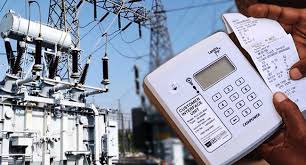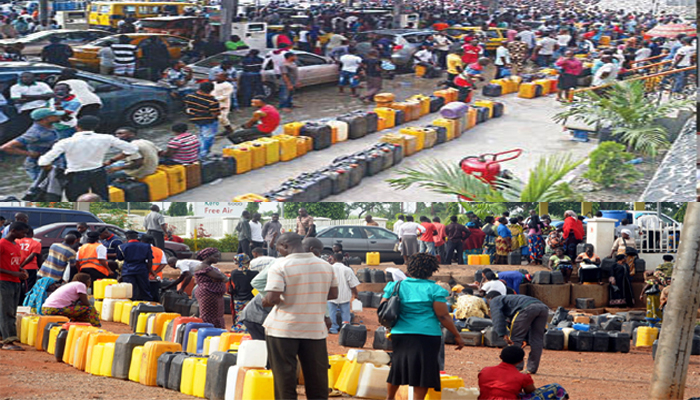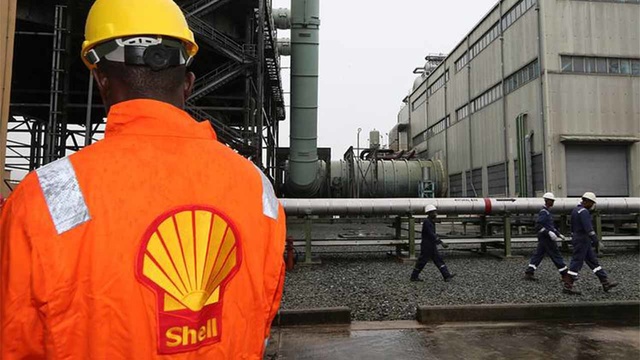
Time for rail haulage of pipelines is now
EnergyDay Editorial Board
Nothing highlights the danger of using trucks to evacuate petroleum products in a country like Nigeria more than the weekend tanker explosion incident in Benue State.
Report has it that scores of people met their untimely deaths in that accident, which ofcourse, was only a repeat of many of such an occurrence across the country.
Similar fire incidents caused by tanker explosions have become a regular occurrence in Benue, Lokoja in Kogi State, the Otedola bridge axis in Lagos, Onitsha in Anambra state and other major cities across the country.
While the estimated numbers of lives lost in incidents like that are running into hundreds of thousands, no thanks to the absence of trusted official data, these accidents which have become a recurring decimal leading to unnecessary loss of lives, and destruction of properties, would have been avoidable with proper planning.
The Governor of Lagos state, Babajide Sanwo-Olu in an interview with Channel TV on Sunday, expressed serious concern on the disastrous economic, social and environmental impact of the use of trucks on the evacuation of petroleum products across the country, especially the traffic gridlocks that result from it, stressing the collateral damage to national economy as a result of loss of productive man-hours.
EnergyDay cannot but join millions of well-meaning Nigerians who are elated at the cheering news of collaboration between the Nigerian National Petroleum Corporate (NNPC) and the Nigerian Railway Corporation (NRC) as regards the use of the railway in the transportation of the pipes to be used in the construction of the ongoing Ajeokuta-Kaduna-Kano (AKK) gas pipeline.
What more, the report that a total of 96 pipes were moved on a single trip which otherwise would have taken 32 trailers to convey from Warri in Delta state to Itakpe in Kogi state via railway, is a clear indication that taking this route is beneficial in every economic sense.
We commend this move. But more importantly, we urge the NNPC to realise the significance of extending the initiative to it’s subsidiary, the Petroleum Product Marketing Company (PPMC) in the evacuation of petroleum products across the country.
The national oil company has taken the right step, though belated, in view of the deep economic costs the past negligence to take such initiative had caused the country’s economy.
Although, the NNPC latest intervention is not the first of such move, it is the more reason why all parties involved- the Nigeria Railway Corporation and the Nigeria National Petroleum Corporation- should as a matter of patriotism, ensure that this new initiative is given much needed teeth.
We recall similar intiative proposed by the Petroleum Equalisation Fund (Management) Board (PEF) over two years ago, which to all intents and purposes, has not seen light of day. It is not enough to support the current move, there is a need to interrogate what happened to the PEF initiative, if only as a way of forestalling future reoccurrence.
In the chequered history of our continuing march to nationhood; the country has never been short of ideas, the challenge has always been the issue of implementation.
This magazine implores the government to use the PEF botched intervention- whatever the reasons may be- as a peg to set up a high powered panel to look into reasons for the failures of past similar intiatives at many levels across sectors and be mandated to proffer solutions.
It is imperative to emphasize that government agencies involved in the energy industry must take to this initiative as a way of reducing cost as we go into deregulation of the sector.
This is the way to go, the path to take.
The business of government is to among other things, create an enabling environment for ease of doing business, which is why relevant government agencies involved in energy sector across the chain, including truck owners must support the move as there are proposals by government to privatise the railway system on the long run.
There have been too many risk factors associated with trucks ferrying petroleum products.
Truck by its nature, is a heavy duty vehicles which puts enormous pressure on our roads, on the long run, even as studies after studies have revealed that these trucks have often reduced the life span of our roads.
According to statistics from the Nigerian Police Force, more than 45 percent of road mishaps is caused by trucks carrying petroleum products.
This is unacceptable, given the fact that other nations of the world have long embraced alternative means of hauling petroleum products, such as the use of rail transport.
In Lagos, the incessant traffic gridlocks in parts of the city, especially the Apapa axis, have affected the productivity level of businesses, and indirectly, has had negative impact of the internally generated revenue.
We implore all stakeholders, including all government, Corporate bodies, government officials and Nigerians in general not only to applaud the latest NNPC/NRC initiative and to ensure its success, but to also extend it to other aspects of haulage in order to reduce cost, save lives, time, our roads and as well being about economic development of the cities where there are railway stations.






